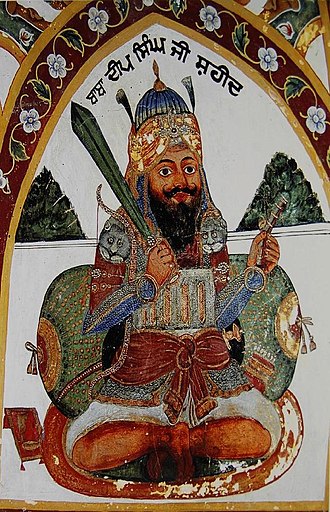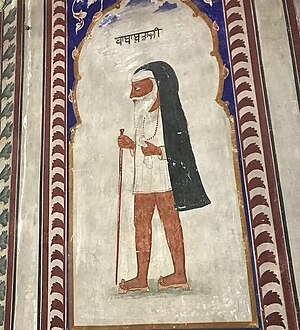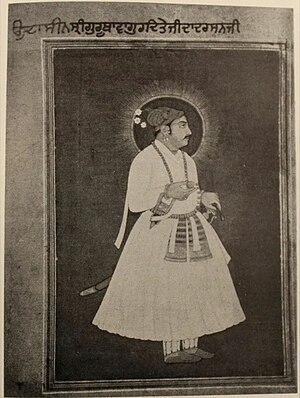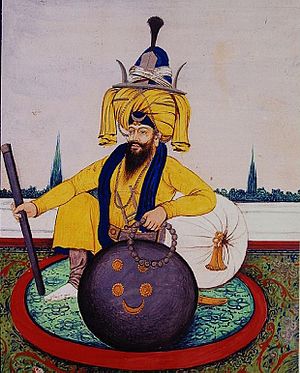Discover Your Roots
SIGN UPDiscover Your Roots
SIGN UPBaba is a female name of African origin that means "Born On Thursday." It is associated with the African culture and signifies the day of birth. The name has various references in different contexts, including places, people, folklore, fictional characters, arts and entertainment, music, food, and other uses. Notably, "baba" is a familiar term for 'father' in many languages, and it is also used as an honorific in several South Asian and Middle Eastern cultures. The name is also linked to historical figures, such as the Indian mystic Sai Baba and the Punjabi Muslim preacher Baba Farid. Additionally, "baba" has been featured in films, music, and literature, reflecting its diverse cultural significance.

Baba Vanga, born Vangeliya Pandeva Gushterova, was a renowned Bulgarian mystic and healer known for her alleged abilities of clairvoyance and precognition. Blind since childhood, she spent most of her life in the Rupite area of the Belasica mountains in Bulgaria. Born in 1911 in Strumica, she faced early health complications and later lost her sight due to an accident. Despite her challenges, Vanga's alleged abilities attracted believers seeking insights into their relatives' fates during World War II. She married Dimitar Gushterov, a Bulgarian soldier, and continued to gain popularity despite suppression attempts by the Bulgarian police and communist party. Vanga's influence extended to political figures and intellectuals, including General Secretary of the Communist Party of the Soviet Union Leonid Brezhnev. She died in 1996, leaving behind a legacy of mystical prowess and a church built in her honor in Rupite. Baba Vanga's life and alleged supernatural powers continue to captivate people even after her passing.

Baba Deep Singh (26 January 1682 – 13 November 1757) is a revered figure in Sikhism, known for his unwavering devotion and sacrifice. Born into a Sandhu Jat Sikh family, he was baptized into the Khalsa by Guru Gobind Singh and received extensive martial and academic education. Baba Deep Singh played a significant role in various military conflicts and was appointed the leader of the Shaheed Misl. In 1757, following the desecration of the Golden Temple by the Afghan army, he led an army to defend the sacred site. During the Battle of Amritsar, Baba Deep Singh displayed remarkable courage, fighting fiercely until his last breath. According to popular belief, he continued to battle even after being decapitated, holding his head in one hand and his sword in the other. His legacy lives on as a symbol of bravery and dedication within Sikh history. Baba Deep Singh's unwavering commitment to protecting his faith and the Golden Temple continues to inspire generations of Sikhs worldwide.

Baba Buddha, born on 6 October 1506 in the village of Kathu Nangal in Amritsar, was a significant figure in early Sikhism. He was a devout follower of Guru Nanak and played a vital role in the formal coronation ceremonies of the five Sikh gurus who succeeded Guru Nanak. Baba Buddha was also appointed as the first Granthi by Guru Arjan when the Adi Granth, a compilation of Sikh scripture, was installed at Sri Harimandir Sahib. He was not only involved in spiritual matters but also held administrative responsibilities, overseeing a jagir land grant and its development. In addition to his spiritual and administrative roles, Baba Buddha was also involved in the military aspects of Sikhism, learning and teaching the Sikh martial art system of Shastar Vidya. After a lifetime of service to the Sikh Gurus, Baba Buddha passed away at the age of 124 in 1631. His legacy lives on as a revered figure in Sikh history, known for his multifaceted contributions to the faith.

Baba Gurditta, born on 5 November 1613, was the son of Guru Hargobind, the sixth Sikh guru, and the father of Guru Har Rai, the seventh Sikh guru of Sikhism. He was born in the forests of Daroli in the Malwa region of Punjab. Baba Gurditta got engaged at the age of six and married at the age of eight. He played a significant role in the Battle of Kartarpur, where he killed a Mughal general named Asman Khan, who was his childhood friend. He died in 1638, and his death had a strong impression on his brother, Tyag Mal, who later became Guru Tegh Bahadur. Baba Gurditta was appointed as the head of the Udasi sect by Sri Chand and is remembered for revitalizing the missionary activities of the sect. His birth year is recorded as 1613, although some sources indicate it as 1608. A gurudwara in Kiratpur Sahib, Punjab is dedicated to Baba Gurditta, and his legacy is commemorated at the site of his death with a mausoleum. Baba Gurditta's life and contributions continue to hold significance in Sikh history and spirituality.

Baba Darbara Singh, also known as Diwan Darbara Singh, was a prominent leader in Sikh history, serving as the second Jathedar of Budha Dal and the third leader of the Akal Takht. Born into a Khatri family in the village of Dal, he was the son of Bhai Nanu Rai and belonged to the family of Guru Hargobind. Darbara Singh played a pivotal role in Sikh history, having served Guru Tegh Bahadur and Guru Gobind Singh, and undergoing the Pahul ceremony to become baptized into the Khalsa order. After the death of Banda Singh Bahadur, he took charge of managing the finances of the Sikh nation and later assumed leadership of the Budha Dal. Under his leadership, the Sikhs reorganized and launched guerilla attacks against hostile forces, demonstrating his strategic and organizational skills. Despite offers of titles and positions, Darbara Singh remained committed to the Sikh cause and rejected such offers from the Mughal government. He passed away in July 1734, leaving behind a legacy of leadership and courage. Darbara Singh's contributions to the Sikh community were instrumental, and his successor, Nawab Kapur Singh, continued his legacy by reforming the organization of the Sikh army.
All images displayed on this page are sourced from Wikipedia or Wikimedia Commons.We use these images under their respective Creative Commons or public domain licenses. Wherever applicable, author attributions and license information are provided. If you believe an image is used incorrectly or outside its license terms, please contact us so that we can review and correct the issue.